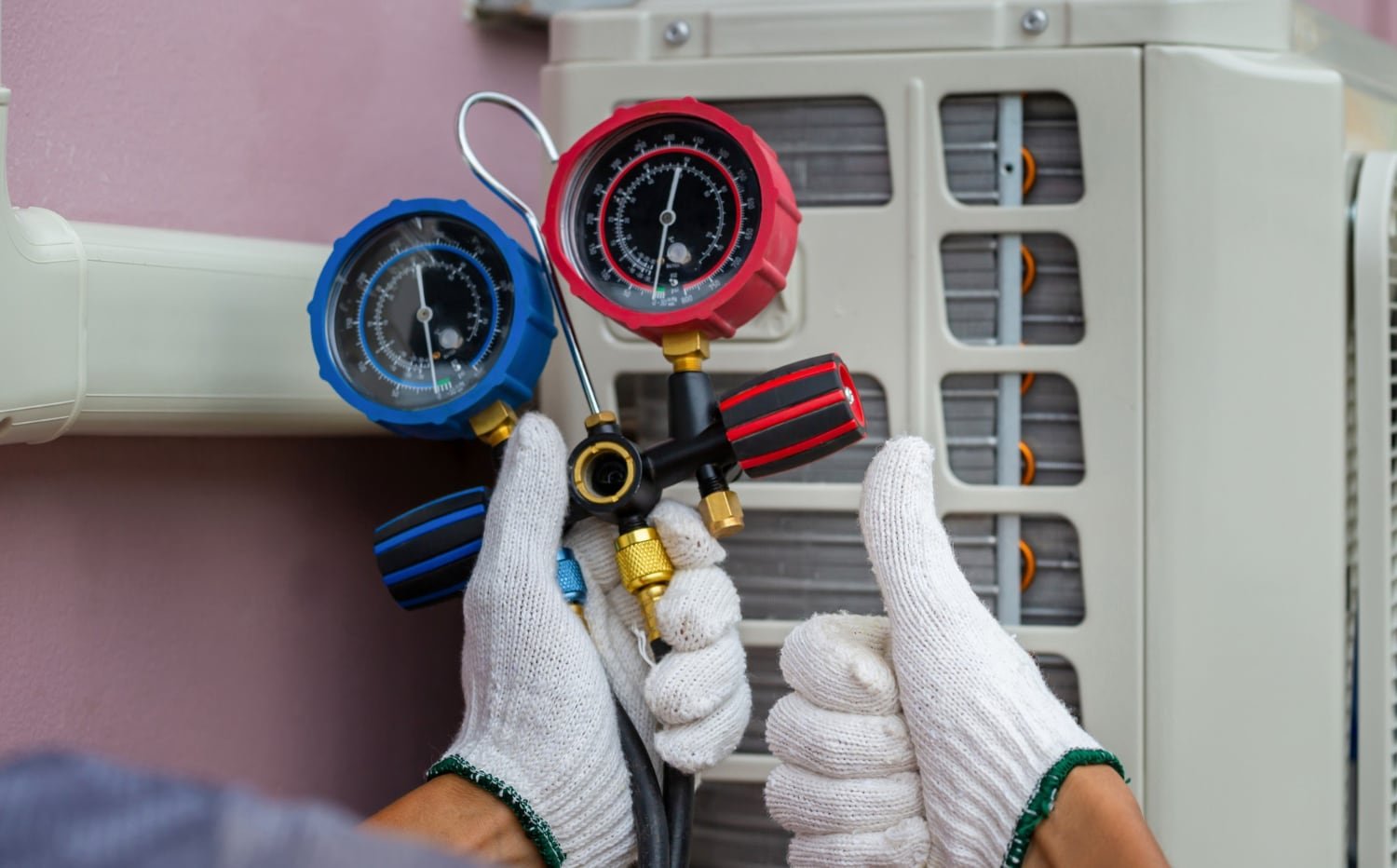
Is Obtaining a Texas HVAC License Worthwhile for Contractors in Texas?
In the bustling state of Texas, where temperatures can reach scorching highs, the demand for proficient heating, ventilation, and air conditioning (HVAC) services remains constant.
For contractors navigating this competitive industry, a pertinent question arises: is obtaining a Texas HVAC license truly worth the effort and investment?
This article seeks to delve into this inquiry, explore the pros and cons, and help contractors make an informed decision.
Legal Compliance and Market Access
At the foundation of this deliberation lies the matter of legal compliance. The state of Texas requires HVAC contractors to hold a license in order to operate legitimately.
A licensed contractor adheres to state regulations, codes, and safety standards, reinforcing a sense of professionalism. Not only does this adherence underscore credibility, but it also enables access to a broader spectrum of HVAC projects.
The license, as a symbol of competency, enhances prospects for securing diverse assignments and, consequently, diversifying revenue streams.
Investment and Training
The journey toward licensure does entail financial investment. From exam fees to educational expenses, the cost might initially seem daunting. Yet, consider this expenditure as an investment in professional growth.
The knowledge acquired during the preparation period and the examination process extends far beyond a single credential. It forms a foundation for a thriving career in the HVAC sector, allowing contractors to navigate complex challenges and deliver superior solutions to clients.
Additionally, the training required for licensure is undeniably rigorous. The comprehensive understanding of HVAC principles, safety protocols, and industry best practices cultivated during this process is, however, invaluable.
It equips contractors to undertake tasks with heightened competence, ensuring that they provide high-quality services that clients can rely on. Everything you learn and practice, whether through your formal training or a Texas HVAC license exam prep class, ensures that you’re ready to handle difficult projects and provide excellent services to your customers.
Competitive Edge in the Market
The Texan HVAC landscape is replete with contractors vying for attention. The one factor that sets apart a licensed contractor from the rest is a formal HVAC license.
This credential is akin to a stamp of approval, signaling professionalism and dedication to excellence. It conveys to prospective clients that the contractor has the essential expertise and abilities to carry out HVAC tasks with consistent reliability.
Moreover, the demand for licensed HVAC professionals continues to rise. Homeowners and businesses alike seek contractors who can offer a level of expertise and assurance that unlicensed practitioners might lack.
By becoming licensed, contractors position themselves to fulfill this growing market demand and forge long-lasting relationships with clients who value quality and accountability.

Expanded Service Offerings
A significant advantage of holding an HVAC license is the expansion of service offerings. Licensed contractors are equipped to undertake a diverse array of HVAC projects, spanning installation, repair, maintenance, and upgrades.
This versatility enables contractors to cater to a wider range of client needs, thereby broadening their client base and revenue potential.
Consider a contractor who holds a license and is able to handle commercial and residential projects. The ability to offer comprehensive HVAC solutions to a varied clientele not only increases the likelihood of securing projects but also paves the way for referrals and sustained growth.
Professional Development and Networking
The journey to licensure doesn’t conclude with passing the examination. The HVAC industry is in a state of perpetual evolution, marked by technological advancements and shifting regulations.
Licensed contractors have the opportunity to engage in continuous learning, attending seminars, workshops, and training sessions that keep them abreast of the latest industry trends.
Furthermore, obtaining a license offers access to a network of like-minded professionals. Engaging with fellow licensed contractors allows for the exchange of insights, experiences, and solutions to common challenges.
This network can be invaluable, providing support and guidance as contractors navigate their careers in the dynamic HVAC sector.
Return on Investment (ROI)
The pivotal question often boils down to whether the investment of time, effort, and money translates into tangible returns. Licensed HVAC contractors typically command higher fees due to their specialized expertise and credibility.
The additional income potential that accompanies a license can offset the initial investment, rendering the pursuit not just worthwhile but financially rewarding in the long run.
Consider this scenario: a licensed contractor secures a contract for a complex HVAC system installation in a commercial building. The project’s complexity demands a higher fee, a fee that might be beyond the reach of an unlicensed contractor. The increased earnings from projects of this nature can rapidly outweigh the initial costs of obtaining the license.
Potential Challenges and Considerations
It’s important to acknowledge that the pursuit of licensure is not without its challenges. The preparation for the examination demands time and dedication, which might be perceived as an obstacle for contractors with busy schedules. Additionally, licensure might entail limitations or restrictions that contractors should weigh against the benefits.
Yet, these difficulties can be conquered by planning strategically and staying dedicated. Many contractors find that the investment in education and preparation is a worthwhile endeavor, leading to enhanced skills, credibility, and, ultimately, career advancement.
Conclusion
In the vibrant world of HVAC contracting in Texas, the decision to pursue a Texas HVAC license is a multifaceted one.
The benefits, ranging from legal compliance and market access to expanded service offerings and professional development, present compelling reasons to consider licensure. While the journey might entail challenges and investments, the rewards – both financial and professional – are substantial.
Ultimately, obtaining a Texas HVAC license is an investment in one’s own career, expertise, and reputation. As the HVAC industry continues to evolve and client expectations rise, a license serves as a cornerstone of trust, ensuring contractors remain at the forefront of their field.
The answer to whether obtaining a Texas HVAC license is worthwhile hinges on a contractor’s vision for their career and their commitment to providing exceptional HVAC services in the Lone Star state.




